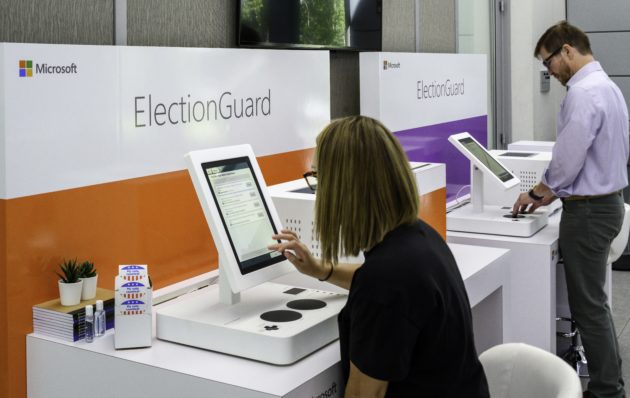
Microsoft debuted a new set of technology tools Wednesday as part of the company’s initiative to make elections safer. The open-source ElectionGuard Software Development Kit aims to secure election results and make systems more transparent for campaigns and voters. The company demoed ElectionGuard for the first time the Aspen Security Forum.
Voters who cast their ballots at a polling center that uses ElectionGuard will receive a tracking code that allows them to go online and verify that their vote was counted and not altered. The system is designed to supplement paper ballots, rather than replace them. Voters receive a printed record of their votes, which they can review before placing it in a ballot box. The tools are compatible with Microsoft’s Xbox Adaptive Controller so that voters with limited mobility can cast their ballots, too.
“We believe ElectionGuard will be an important tool to protect the voting process and to ensure that all voters can trust the outcome of free democratic elections,” said Microsoft VP of Customer Security & Trust Tom Burt, in a blog post.
ElectionGuard is free and will be available through GitHub later this summer. Microsoft is not selling the system commercially but partnering with existing vendors of voting technology. Microsoft enlisted Portland, Ore.-based cybersecurity company Galois to help develop ElectionGuard.
The voting system is one of several tools developed under Microsoft’s Defending Democracy Program. Last August, the company launched AccountGuard, a service that notifies political organizations of threats. The service is now available in 26 countries across four continents.
Cyberattacks have become one of the most insidious tools foreign governments use to shake confidence in democratic processes. AccountGuard has flagged 781 nation-state attacks targeting political organizations since launching last summer. Microsoft says nearly 10,000 customers have been targeted or compromised by nation-state attacks, with 84 percent affecting enterprise customers, in the past year.
“The problem is real and unabated,” Burt said in the blog post. “It is time to find solutions.”



